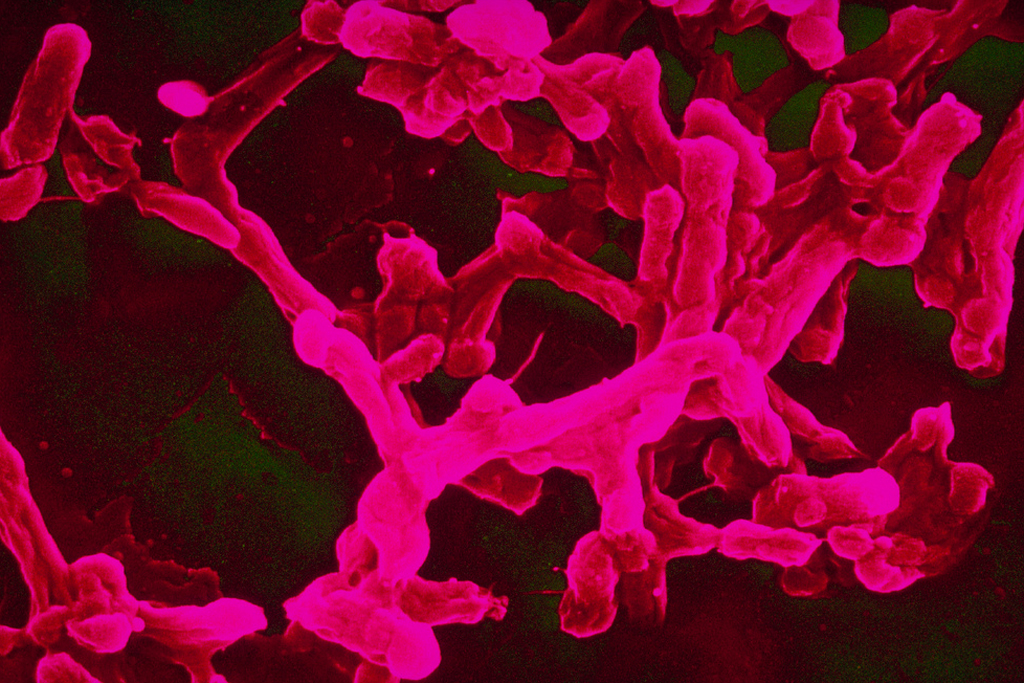Reflection: Viruses, Evil, and the Goodness of God
by: Beth Snodderly, Aug 20, 2018
See more articles on the topic of Health and Disease here.
“What are viruses? Where do viruses come from?”
“In what ways do you think viruses could be a result of the Fall?”
“In what ways can Christians participate in redemptive work involving viruses?”
Christianity Today recently published an interview with Anjeanette “AJ” Roberts, a microbiologist and research scholar at Reasons to Believe. She holds a BS in chemistry at the University of Tulsa, a PhD in molecular and cell biology from the University of Pennsylvania, and an MA in Christian apologetics from Biola University. As a postdoctorate scholar at Yale University, Roberts worked on proof of concept vaccines that used the same vector now being used to manufacture the Ebola vaccine.
In the interview, Christianity Today asked, “What are viruses? Where do viruses come from?”
Ralph Winter may be the only one to have been willing to suggest an answer to this question by pinning that directly on the work of God’s adversary.
Roberts has a glimpse of this, but she doesn’t follow through when she says, “We ought to think about the Book of Job. Job has all these things that are besetting him, and in all of this Job did not sin. He turned and said, ‘You’re the Creator.’ And Job had no clue what the backstory was, and yet Job’s actions were having huge cosmic implications.”
NOTE: Roberts could have followed through by pointing out that the backstory was that Satan was involved in the suffering Job was experiencing.
CT QUESTION: “In what ways do you think viruses could be a result of the Fall?”
Roberts: “Just looking at the Genesis narrative, there’s something really interesting there: When they fall, God basically says, ‘You’re out of here, and I’m posting an angel at the gate, and I don’t want you to eat of the Tree of Life—because you’d live forever.’ What that suggests to me is that there was a decay process that was part of the creation from the very beginning.”
NOTE: But according to Winter’s speculation (with which my exegetical research agrees), Genesis 1 is NOT the “very beginning.” Yes, where Scripture picks up the narrative in Genesis 1:1, there was a decay process in the world outside the re-created Garden, because “Satan had a crime record” before he appeared to Eve as a serpent. Winter believed God created humans to fight back against the works of the devil that had marred God’s world. Genesis 1:28: “fill the earth and subdue it.” Whimsically, the Hebrew word translated “subdue” even sounds like a counter-attack against something that is out of order: kabash.
CT asks a very Roberta Winter Institute-like question near the end of the article:
CT QUESTION: “In what ways can Christians participate in redemptive work involving viruses?”
Unfortunately, she concludes with a typical “Reasons to Believe” argument that what looks like evil to us is really good:
Are these viruses that cause disease just a part of the theodicy in the way that I think about human suffering or are they actually doing something positive out there in nature that we haven’t discovered yet?
Denying that obvious suffering is evil is not helpful in communicating what God is like is to the secular world. Winter often quoted a Harvard professor’s “unchallengeable statement”: “If the God of Intelligent Design exists he must be a divine sadist who creates parasites that blind millions of people” (Winter 2008, 348). Winter wanted people to recognize, instead, that suffering, violence, and evil are not God’s will and are not from him.
If you don’t have in mind Satan’s Fall before Creation, you end up with Dr. Roberts’ stance that without the death of various species, the planet would be over-run with them. (She names bacteria, but others point to deer populations needing to be killed off, etc.) She almost has the answer when she mentions the Tree of Life. But because she thinks the creation story in Genesis is the beginning of everything, she doesn’t follow through with the speculation that God originally DID plan for Creation to have no death in it, and that the Tree of Life symbolizes whatever that paradigm would have been.
Reference
Winter, Ralph D. 2008. Frontiers in Mission. Pasadena: WCIU Press.
Beth Snodderly, D Litt et Phil, is a past president of William Carey International University and is the editor for both the William Carey International Development Journal and the Ralph D. Winter Research Center.


